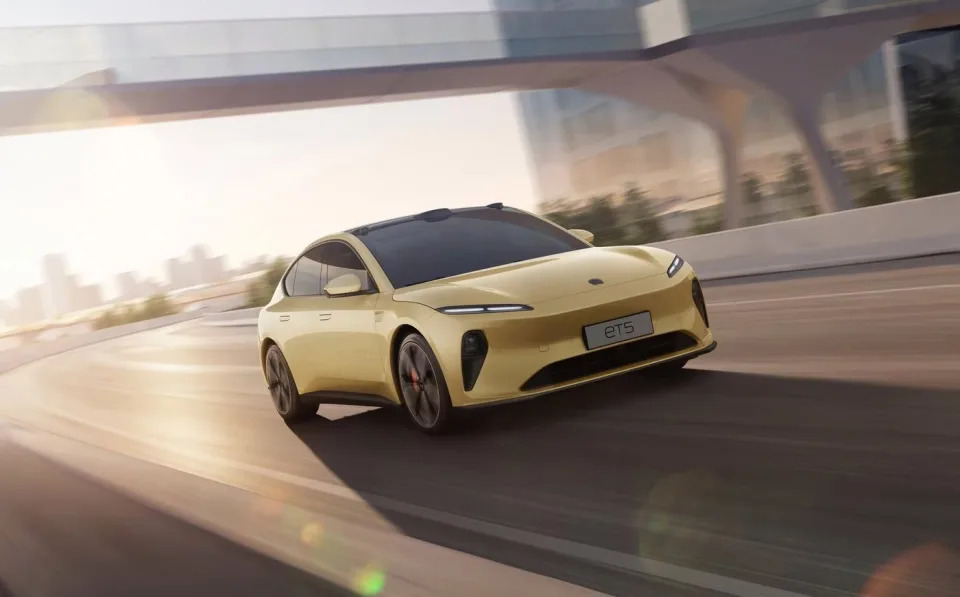Nio 's (NYSE: NIO) stock surged 14% on Sept. 5 after the Chinese electric vehicle (EV) maker posted its second-quarter report. Its revenue rose 99% year over year to 17.45 billion yuan ($2.4 billion) but missed analysts' estimates by $40 million. It narrowed its adjusted net loss per American depositary share (ADS) from 3.28 yuan to 2.21 yuan ($0.30), which matched the consensus forecast.
Nio didn't hit a home run, but its soaring deliveries, rising vehicle margins, and rosy guidance suggested it was reaching an inflection point. Should investors buy this oft-overlooked EV stock while it still trades more than 20% below its IPO price?

Why the bears are backing off
Nio sells a wide range of electric sedans and SUVs. It differentiated itself from its competitors with removable batteries that could be quickly swapped out at its battery-changing stations. That feature addressed the lengthy charging times for EVs.
Nio's annual deliveries more than doubled in both 2020 and 2021, but they only increased 32% in 2022 and 31% in 2023. That deceleration was caused by supply chain constraints, weather-related disruptions, macro headwinds for consumer spending in China, and an ongoing EV price war driven by Tesla 's deepening discounts.
As Nio's deliveries slowed down, its vehicle margins dropped from a record high of 20.2% in 2021 to 9.5% in 2023 as it lost its pricing power. The bears claimed Nio's business model was unsustainable, and its stock plunged from its record high of $62.84 in February 2021 to less than $4 earlier this year. But in the second quarter, its deliveries and vehicle margin both improved sequentially and year over year.
|
Metric |
Q2 2023 |
Q3 2023 |
Q4 2023 |
Q1 2024 |
Q2 2024 |
|---|---|---|---|---|---|
|
Deliveries |
23,520 |
55,432 |
50,045 |
30,053 |
57,373 |
|
Growth (YOY) |
(6%) |
75% |
25% |
(3%) |
144% |
|
Vehicle margin |
6.2% |
11% |
11.9% |
9.2% |
12.2% |
Data source: Nio. YOY = year over year.
Nio expects to maintain that momentum with 61,000 to 63,000 deliveries in the third quarter, which would represent 10% to 14% growth from a year earlier, as its revenue rises 0% to 3% year over year. It attributes that recovery to its market share gains, the launch of its new high-end ET7 Executive Edition sedan, and the expansion of its lower-end Onvo smart vehicle brand in China. It's also getting ready to launch its new Firefly brand, which focuses on smaller and cheaper vehicles, in Europe.
Analysts expect Nio's revenue to rise 23% for the full year. They also expect its revenue to grow at a compound annual growth rate (CAGR) of 27% from 2023 to 2026. That's an impressive growth rate for a stock with a price-to-sales ratio of just 1. Tesla, which is larger and growing at a much slower rate, trades at 7 times this year's sales.
But will Nio's valuations remain under pressure?
Nio's valuations are being squeezed by three main challenges. First, the company will stay deeply unprofitable as it continues to expand its capital-intensive battery-swapping networks. Those costs could consistently offset its expanding vehicle margins. It's also more than doubled its share count since its IPO with its stock-based compensation and secondary share offerings, and that dilution should persist for the foreseeable future.
Second, Nio's aggressive expansion into Europe with cheap EVs could be threatened by higher tariffs that went into effect in July. Its European-Union-bound vehicles are now subject to an additional 20.8% tariff on top of its original 10% import duty, and it might need to hike its prices to offset that pressure. Nio is counting on the European market to diversify its top line away from China, where it faces tough challenges but still generates most of its revenue.
Lastly, the persistent trade and political tensions between the U.S. and China are still driving many investors away from Chinese stocks. So unless those tensions wane, Nio could continue to trade at a discount to many American EV stocks.
So is it the right time to buy Nio's stock?
Nio's prospects are improving, and its low valuation should limit its downside potential. However, I don't think it will attract too much attention from the bulls unless the relationship between the U.S. and China improves and the company addresses its challenges in Europe, significantly expands its vehicle margins, and gradually narrows its operating losses.
If you plan to tune out that noise for a few years, it might be smart to buy Nio's stock while it still trades below its IPO price. But for now, I'd rather invest in other undervalued EV stocks that aren't so tightly tethered to China.
Before you buy stock in Nio, consider this:





